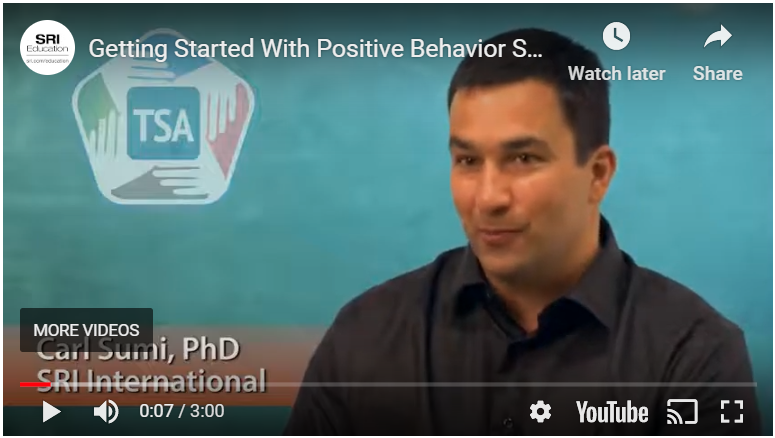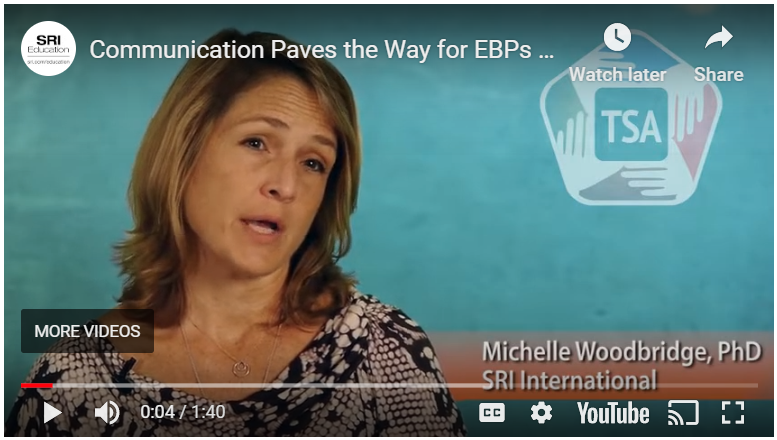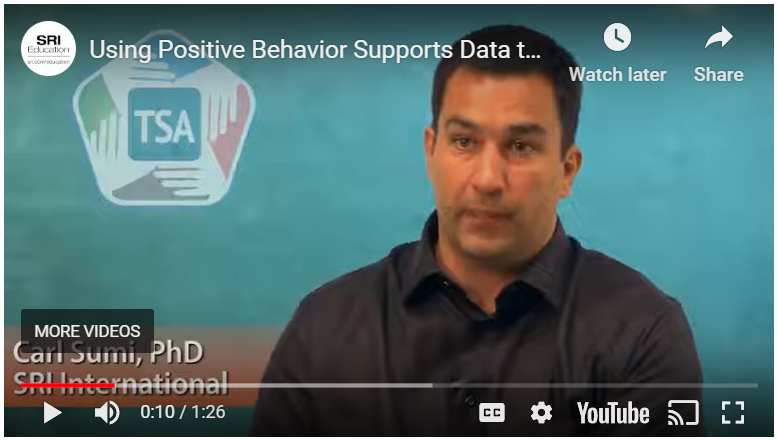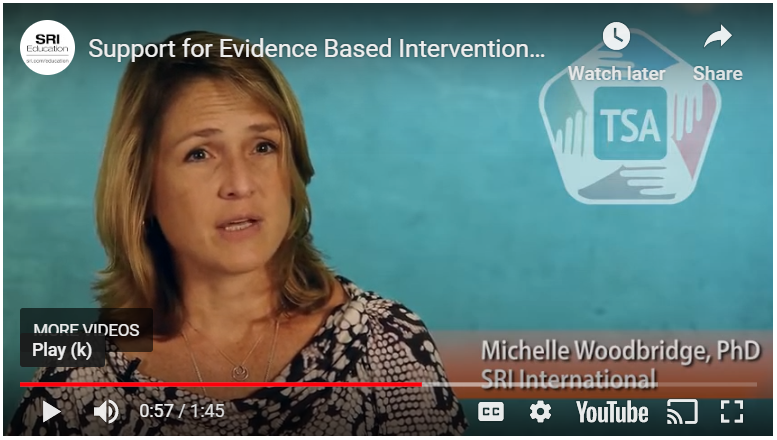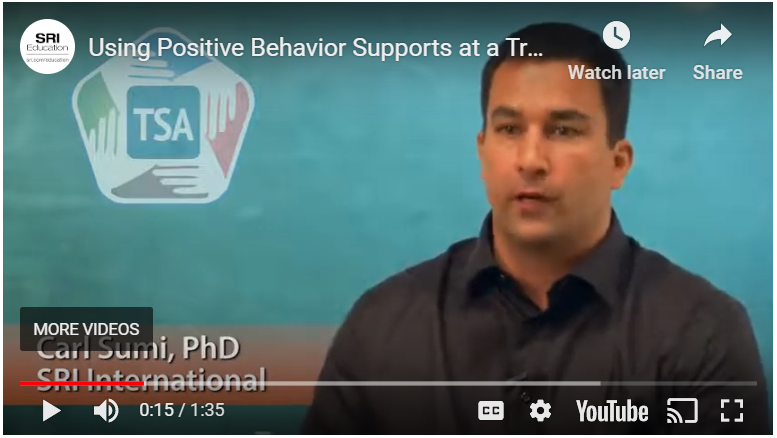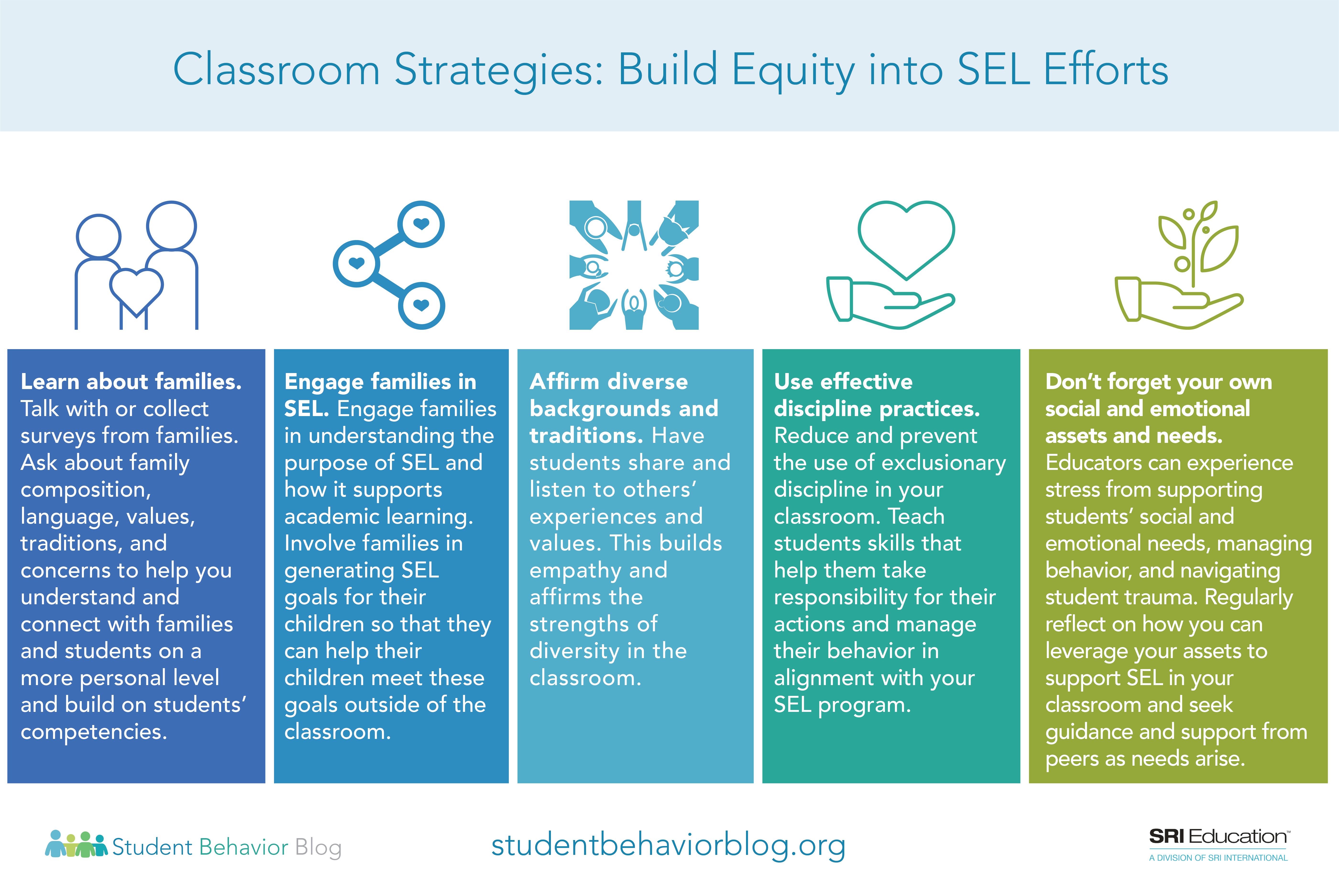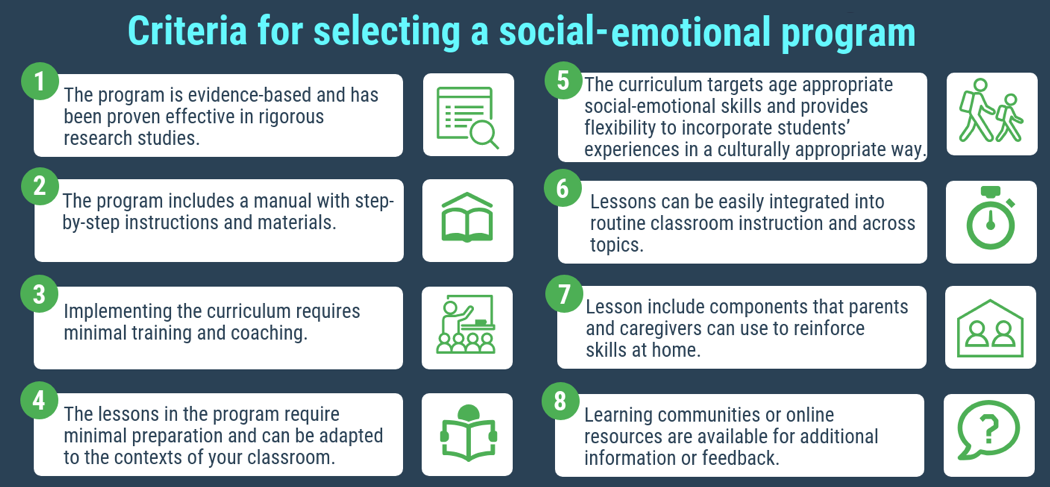Dr. Michelle Woodbridge (who has been studying prevention and intervention programs related to school-based mental health for more than 25 years) describes school-based clinicians’ perspectives on how using research-supported trauma-informed intervention programs in schools created meaningful, sustainable changes in practice. This video was produced by the 3C Institute. Helpful resources on cognitive behavior interventions can be … Continue reading Clinicians’ perspectives on implementing evidence-based practices
Dr. Carl Sumi, an expert in student behavioral research and interventions discusses positive behavior interventions and supports. This video was produced by the 3C Institute. Additional resources on cognitive behavior interventions can be found on the Cognitive Behavioral Intervention for Trauma in Schools (CBITS) program website. Resources for trauma-informed schools can be found on the Treatment … Continue reading How schools can get started with Positive Behavior Supports
Researcher-practitioner partnerships in implementing & evaluating evidence-based programs in schools
Implementing and evaluating evidence-based programs (EBPs) in schools requires strong researcher-practitioner partnerships. Here’s what Dr. Michelle Woodbridge (who has been studying prevention and intervention programs related to school-based mental health for more than 25 years) says about the role of communication in implementing EBPs in schools. This video was produced by the 3C Institute. Helpful resources … Continue reading Researcher-practitioner partnerships in implementing & evaluating evidence-based programs in schools
In this video, Dr. Michelle Woodbridge (who has been studying prevention and intervention programs related to school-based mental health for more than 25 years) discusses how to evaluate the fit of EBPs for schools. This video was produced by the 3C Institute. Additional resources on cognitive behavior interventions can be found on the Cognitive Behavioral … Continue reading How to determine the quality of evidence-based programs (EBP) for schools
In this video, Dr. Carl Sumi, an expert in student behavioral research and interventions, discusses the importance of using data to make decisions in PBIS schools. This video was produced by the 3C Institute. Helpful resources on cognitive behavior interventions can be found on the Cognitive Behavioral Intervention for Trauma in Schools (CBITS) program website. … Continue reading Using data to make better decisions in positive behavioral support programs
In this video, Dr. Michelle Woodbridge (who has been studying prevention and intervention programs related to school-based mental health for more than 25 years) discusses why schools should adopt evidence-based programs. This video was produced by the 3C Institute. Additional resources on cognitive behavior interventions can be found on the Cognitive Behavioral Intervention for Trauma … Continue reading Why should schools adopt evidence-based Interventions?
In this video, Dr. Carl Sumi, an expert in student behavioral research and interventions, discusses the intersection between PBS and trauma informed schools. School-wide Positive Behavior Supports is a framework for operating schools and changing social culture and supporting all students. This video was produced by the 3C Institute. Additional resources on cognitive behavior interventions … Continue reading Why Positive Behavior Supports is a good fit for Trauma Informed Schools
Social-emotional learning (SEL) programs are more likely to be successful with all students when they are grounded in strategies that promote equity. Equity means ‘leveling the playing field’ and creating a culture where all students feel fully included, respected, represented, and valued. Here are a few strategies that start in the classroom. Content excerpted from … Continue reading Strategies for bringing an equity lens to SEL
Standalone SEL programs or curricula build students’ social-emotional skills separately from main instructional time. To implement standalone SEL programs, typically teachers or other qualified school staff members, such as counselors or school social workers, receive training in the curriculum and allot time during the school day to teach a series of lessons. Standalone SEL programs … Continue reading Criteria for selecting a social-emotional program


